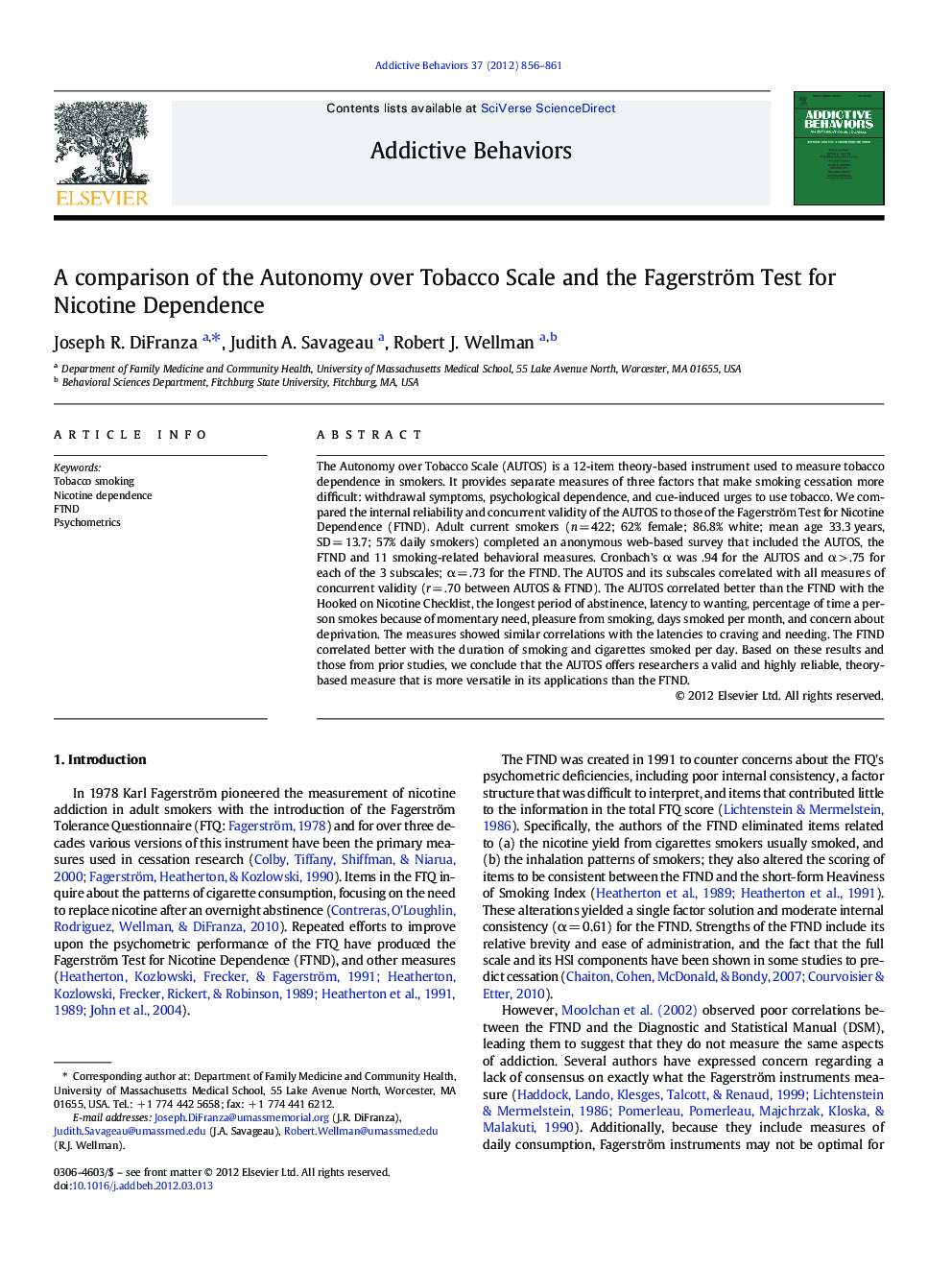| Article ID | Journal | Published Year | Pages | File Type |
|---|---|---|---|---|
| 899373 | Addictive Behaviors | 2012 | 6 Pages |
The Autonomy over Tobacco Scale (AUTOS) is a 12-item theory-based instrument used to measure tobacco dependence in smokers. It provides separate measures of three factors that make smoking cessation more difficult: withdrawal symptoms, psychological dependence, and cue-induced urges to use tobacco. We compared the internal reliability and concurrent validity of the AUTOS to those of the Fagerström Test for Nicotine Dependence (FTND). Adult current smokers (n = 422; 62% female; 86.8% white; mean age 33.3 years, SD = 13.7; 57% daily smokers) completed an anonymous web-based survey that included the AUTOS, the FTND and 11 smoking-related behavioral measures. Cronbach's α was .94 for the AUTOS and α > .75 for each of the 3 subscales; α = .73 for the FTND. The AUTOS and its subscales correlated with all measures of concurrent validity (r = .70 between AUTOS & FTND). The AUTOS correlated better than the FTND with the Hooked on Nicotine Checklist, the longest period of abstinence, latency to wanting, percentage of time a person smokes because of momentary need, pleasure from smoking, days smoked per month, and concern about deprivation. The measures showed similar correlations with the latencies to craving and needing. The FTND correlated better with the duration of smoking and cigarettes smoked per day. Based on these results and those from prior studies, we conclude that the AUTOS offers researchers a valid and highly reliable, theory-based measure that is more versatile in its applications than the FTND.
► Compared Autonomy over Tobacco Scale and Fagerström Test for Nicotine Dependence. ► 422 adult current smokers (57% daily smokers) completed web-based survey. ► α = .94 for AUTOS and .73 for FTND; α > .75 for each of the 3 AUTOS subscales. ► AUTOS correlated with all measures of concurrent validity (r = .70 AUTOS & FTND). ► AUTOS a valid & reliable, theory-based measure more versatile than the FTND.
